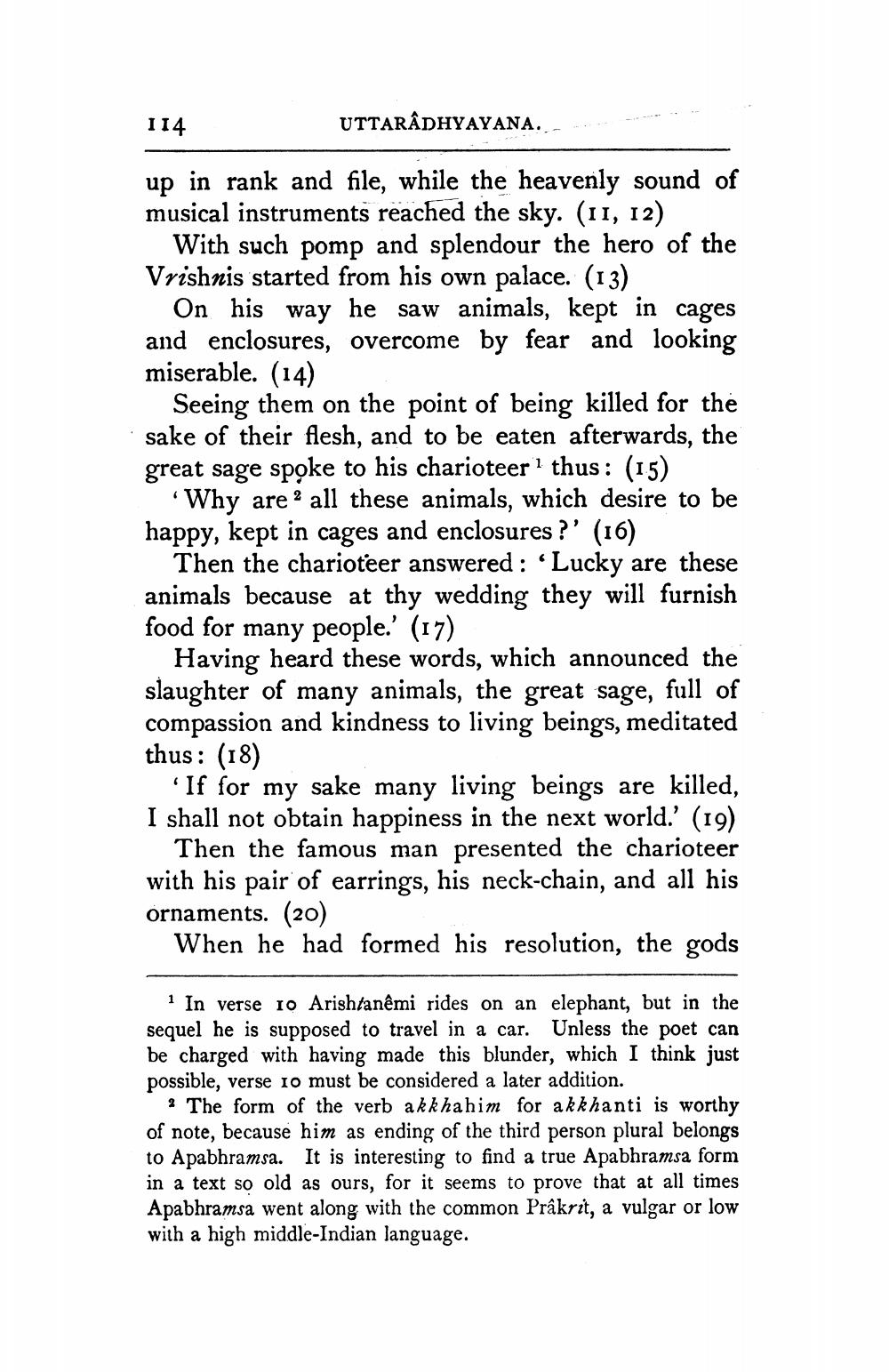________________
UTTARÂDHYAYANA.
up in rank and file, while the heavenly sound of musical instruments reached the sky. (11, 12)
With such pomp and splendour the hero of the Vrishnis started from his own palace. (13)
On his way he saw animals, kept in cages and enclosures, overcome by fear and looking miserable. (14)
Seeing them on the point of being killed for the sake of their flesh, and to be eaten afterwards, the great sage spoke to his charioteer1 thus: (15)
2
'Why are all these animals, which desire to be happy, kept in cages and enclosures?' (16)
Then the charioteer answered: 'Lucky are these animals because at thy wedding they will furnish food for many people.' (17)
Having heard these words, which announced the slaughter of many animals, the great sage, full of compassion and kindness to living beings, meditated thus: (18)
'If for my sake many living beings are killed, I shall not obtain happiness in the next world.' (19)
114
Then the famous man presented the charioteer with his pair of earrings, his neck-chain, and all his ornaments. (20)
When he had formed his resolution, the gods
elephant, but in the Unless the poet can
1 In verse 10 Arishtanêmi rides on an sequel he is supposed to travel in a car. be charged with having made this blunder, which I think just possible, verse 10 must be considered a later addition.
2 The form of the verb akkhahim for akkhanti is worthy of note, because him as ending of the third person plural belongs to Apabhramsa. It is interesting to find a true Apabhramsa form in a text so old as ours, for it seems to prove that at all times Apabhramsa went along with the common Prâkrit, a vulgar or low with a high middle-Indian language.




